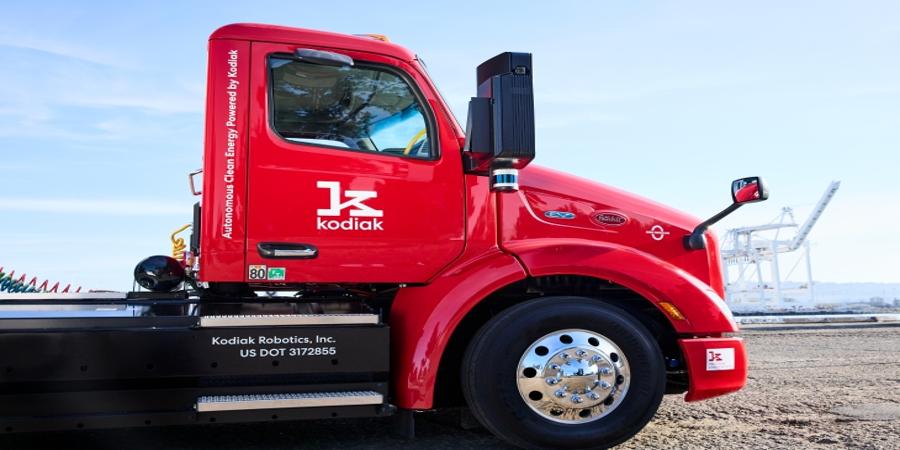Self-driving trucking company Kodiak Robotics plans to introduce an electric autonomous Class 8 truck to its fleet in 2024. The news comes as California, one of the states Kodiak hopes to do business in, recently voted to ban the sale of new diesel heavy-duty trucks by 2036 and will require that all trucks be zero emissions by 2042.
With the exception of Swedish company Einride and its electric autonomous pods, most autonomous trucking companies are still testing and deploying diesel engine trucks. That’s largely because the electric trucking industry isn’t yet well developed, as evidenced by the less than desirable ranges on the electric semis coming to market today. Kodiak’s Peterbilt Model 579EV, for example, only has a range of 150 miles, which wouldn’t cover even a one-way trip on most of the routes Kodiak drives.
Kodiak says while it believes zero-emissions vehicles have a future across America, the intended use for this vehicle is in California. California has long been a champion of greener vehicles, but the same cannot be said for the state’s willingness to embrace autonomous trucking technology.
It’s currently illegal to test or deploy heavy-duty AVs in the state, and in January, regulators introduced a bill that would require a trained human safety operator to be present any time a self-driving truck operates on public roads in California. If passed, the bill would prevent the testing of driverless trucks as they were intended to be used, and would complicate the interstate freight runs that Kodiak and others are already trialing.
The bill is still currently in the California Assembly and would need to pass in the lower house before going through a range of committees in the state Senate. Kodiak founder and CEO Don Burnette said the company was disappointed that the Assembly is considering the ban, but he didn’t explain how Kodiak’s strategy would shift if the bill goes through.
Regardless of California’s regulatory environment, Kodiak says the introduction of the 579EV, which will be outfitted with Kodiak’s self-driving technology and latest generation of sensors, will help the company test future electric integrations.
Today, the range and charging infrastructure for electric semis is lacking. But by working with EV technology now — mostly for short-haul and drayage deployments, rather than long-haul — Kodiak says it will be ready to deploy more quickly when the range catches up to market needs.
“We believe that the future of trucking is the combination of electric and autonomous vehicles,” said Burnette in a statement. “Given advancements in battery and fuel cell technologies, achieving zero-emissions trucking will soon be within reach. Kodiak’s work on the Peterbilt Model 579EV will help us gain valuable experience in how to build autonomous electric vehicles, and help us realize that vision. Customers have been long asking for an autonomous electric vehicle and we are delivering on that need.”
Like many other autonomous technology companies, Kodiak’s autonomous system is vehicle and powertrain-agnostic, which allows the company to integrate its tech into new truck platforms as they become available. Kodiak says it will explore other sustainable vehicle platforms, such as fuel cells, as they come to market.
Source @TechCrunch



